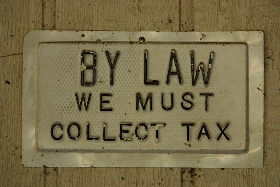Did you pay someone to care for a child, spouse, or dependent last year? If so, you may be able to claim the Child and Dependent Care Credit on your federal income tax return. Below are the top 10 things you should know about claiming a credit for child and dependent care expenses.
you pay someone to care for a child, spouse, or dependent last year? If so, you may be able to claim the Child and Dependent Care Credit on your federal income tax return. Below are the top 10 things you should know about claiming a credit for child and dependent care expenses.
- The care must have been provided for one or more qualifying persons. A qualifying person is your dependent child age 12 or younger when the care was provided. Additionally, your spouse and certain other individuals who are physically or mentally incapable of self-care may also be qualifying persons. You must identify each qualifying person on your tax return.
- The care must have been provided so you – and your spouse if you are married filing jointly – could work or look for work.



